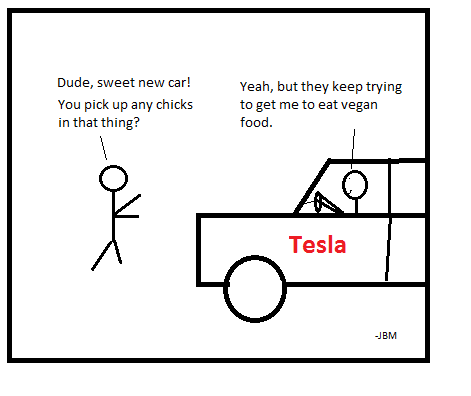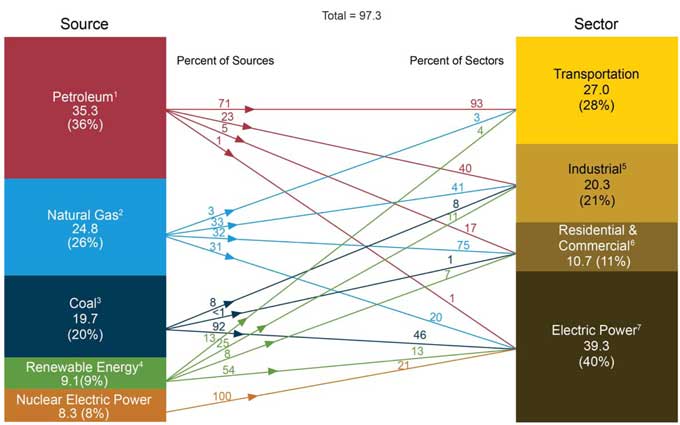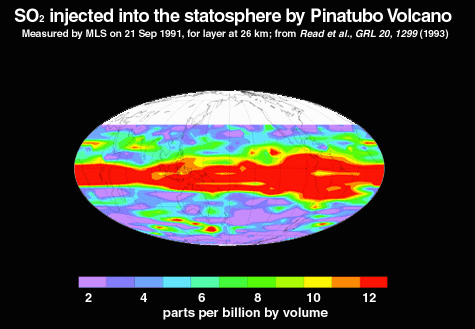
The DOT says that bicycling is awesome, and has a happy dude in a suit to prove it. see site.
Make sure you make it all the way to the bottom for the funny comic!
What's the big deal about bicycles? Everything! You get exercise and you get around. MrMoneyMustache has a great post on bicycles that you should check out if you have time.
So what's this doing on a climate change website? This one is easy. Unless you eat only beef all the time, a bike produces less CO2 per mile than a car.
Maths!
Good news! The maths this time are super easy! Also, great news! You can eat bacon and then bicycle and it is better for the environment than driving a car!
Burning a gallon of gas gets you about 20 miles and produces 8kg of CO2. Let's assume you weigh 175 lbs and bicycle 20 miles. Most calculators show you burning about 1000 calories to do this. Let's further assume you eat potatoes to get that energy. Potatoes are about .2kg CO2 per kg potato, and a kilogram of potato has about 500 calories that we can use (it has many more, but we can't consume them all perfectly). So you need to eat 2kg of potatoes in order to gain 1000 calories and then bicycle a mile. This equates to .4kg of CO2, or literally only 5% the emissions of a car.
Let's go to worst-case scenario. You eat only beef (note that you will likely die young) which makes way more CO2 in its production than potato (just picture how much cows fart, and that they produce a very strong greenhouse gas). Luckily cow is very energy dense, and you only need to eat .6kg to get 1000 calories. Unfortunately, a cow makes 29kg of CO2 equivalent per kg of meat, and 1000 calories produces 20kg of CO2 equivalent. So you are pumping the equivalent 20kg of cow farts into the air to get those 20 miles (more seriously, it is probably like .5kg of cow farts, plus some CO2, cause them cow farts really are strong greenhouse gases).

So good, but not worth it for the environment
Okay, so I have good news! before you go all vegan on me, Pigs are much more efficient! You only need to eat .3kg of these bad boys to get 1000 calories, and they only produce 8kg of CO2 per pound (pigs don't fart as much methane, I guess? Actually they require less feed and less water to make meat). So you produce about 3kg of CO2 if you eat bacon and bike 20 miles, which is still better than a car. Moral of the story: eat bacon and buy a bicycle. Or you could eat potatoes and veggies and be really good for the environment, but let's be realistic, Americans aren't gonna eat much less meat, so at least they can substitute pig in there.

Eating bacon and then bicycling is still better for the environment than driving.
Other important stuffs (like getting fit and sexy)
I bike in Boston and Cambridge. I bike to work every single day. I never have to worry about finding parking. Better yet, I get to go straight from my door to the door of work. I go shopping with my bike, and that's even better. Nearly all stores have a place to park my bike right at the door, and I can usually fit all the foot I need into a large backpack.
I bike to bars at night, I bike home from the same bars. When I go to a friend's party, I always bike. I pretty much never drive anywhere, and usually don't take the subway. It turns out that biking takes less time than nearly any form of transportation. One great example: my friend Erik and I were walking home from a party (I was walking my bike). He hailed a cab, I jumped on my bike as soon as he was in the cab. Erik lives next door to me. Going at my usual after-party biking pace I beat him home. And then I waited for the cab to arrive, arrogantly leaning my bike against his apartment complex like it wasn't an effort. I had just saved a $10 cab ride and a few minutes.
This is not rare. If traffic is heavy, I beat friends in a cross-town trip by about 20 minutes. I live a mere mile from work, but I can get there faster than any other form of transportation. It's faster than driving cause I don't need to go pick up my motorcycle from the garage and then find parking at work.
Biking is faster than the subway in nearly all cases, and more convenient in Boston cause my bike doesn't shut down at midnight (nor has it been stolen). Also, every time I take my bike instead of the subway, I save at least $4 round trip. Usually it is more like $20, cause I don't have to take an expensive Boston cab back home after a night out. So let's say I go out twice per week and save an average of $10 every time. That is $20 per week, for 50 weeks, or $1000 per year. Just paid for several of my bikes, yo. Or like 3 beers a week.
What's the best part about bicycling everywhere? Being fit. Your clothes will fit better, you will have more energy, and people find you sexier. Including your spouse or significant other. Yes, yes, they do say that they love you as you are. They are lying. Get on a bike.
So wait. I just said you could do something that saves time, saves money, saves the environment, makes you more attractive, and will get you the ladies/men and/or make your relationship spicier? Why isn't everyone biking right now?!?
More seriously, people might have three reasons: you work too far away (this is a bad idea to start with, both environmentally and from a money perspective), up front cost, and safety concerns.
The first: future post. Too big to include in this one. Suffice it to say, if you don't live close enough to work to bicycle there, you live too far from work. If your job is in an area where you don't want to raise your family, you are probably either in a rough place financially or maybe you are financially well-off financially and are still making poor life decisions (more on this later, too).
The second: A bike costs a lot less than a car. Buy a cheaper car and then buy a bike. More legitimate: you have enough money to afford monthly subway fare, but not a bike. And/or you live in an area where your bike gets stolen. I got nothin' for you here. Try to take public transportation or walk, cause driving is still bad for the environment. If you can afford a car, you can afford a bike and a lock.
The third: Safety! Wear a helmet. Everyone on a bike should wear a helmet. I know helmets make you sweat and mess up your hair. You know what is worse than having bad hair from a helmet? Becoming a vegetable from getting smeared on the road.
Back to accidents. Bicycles do have a slightly higher accident rate per mile. But if you live near work and bicycle, you drive few miles. If you then consider that you cover 6x as many miles on your average car commute as your average bike commute, your death rate per minute is actually equal to that of a car. Mr Money Mustache does a great job of describing this, so I won't go farther. Moreover, If you factor in the health benefits of bicycling, you gain health and actually increases your chances of living longer (same link describes this).
Okay, this is getting long. Time to Summarize!
Bicycling will save the environment, save you time, prolong your life, make you sexier, and save you money. It's a damn miracle drug, and if you aren't on it, you are doing something wrong with your life.
-Jason Munster








